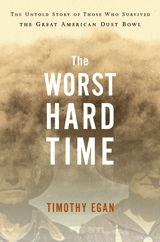Reject #5. And, while we're at it, #6.
Crown passed on Destination Out!, as did (o my lord) Billboard Books, publishers of Freebirds: The Lynyrd Skynyrd Story. We're down to a few majors now, and a sad string of farm teams that are just on this side of being vanity presses. Seems the audience for free jazz, in most editors' minds, is miniscule. (It is, isn't it. Don't tell me.) And it seems that we haven't been especially convincing when it comes to the overlap we claim exists between fans of out jazz, and, say, jam bands. Also, most editors have mentioned that a narrative history, rather than a record-centered approach, would appeal more, though whether this is simply a hollow, face-saving gesture is anybody's guess.
Anyway, here's more of what they're politely saying No to, for your trouble:
Anyway, here's more of what they're politely saying No to, for your trouble:
1978
Arthur Blythe
Lenox Avenue Breakdown
Columbia
Arthur Blythe, as; Bob Stewart, tuba; James Newton, fl; James Blood Ulmer, g; Cecil McBee, b; Jack DeJohnette, ds.
Dexter Gordon ended his self-imposed exile in Europe with a series of ecstatically received gigs in New York, followed by the release of the disappointing and predictably named album The Homecoming. Viewed at the time as a sign of jazz’s reemergence as a relevant artistic force, in retrospect it signals the spot at which jazz turned in on itself, shedding new influences in favor of a museum-grade worship of the past. A much less heralded moment of jazz transformation came when NYC loft veteran Arthur Blythe signed to Columbia in 1978. After a week of rehearsals with bandmates, Blythe created Lenox Avenue Breakdown. A bracing amalgam of the new and traditional, the album balances melody and free play, cohesive group dynamics and wild fights of fancy, in creating an ode to urban life in all its contrasts. Ranging from noirish nocturnes to vampy blues wails, the album brought the influences that had been incubating in the hot-house of loft jazz earlier in the decade into the mainstream, however briefly. The first track in particular, the carnivalesque “Down San Diego Way,” is as breezy as its name, with all players contributing equally to the lightly free funk. It stands as a high point in the careers of all involved, particularly Stewart, who put down here one of the great tuba statements in modern jazz. Once loosed on the world, the world took little notice. But sometimes it’s important to step out of the museum and into the light of day.





1 Comments:
Have you guys tried Routledge? (Sorry if I missed this at some point) Seems very eclectic. http://www.routledge.com/
Post a Comment
<< Home